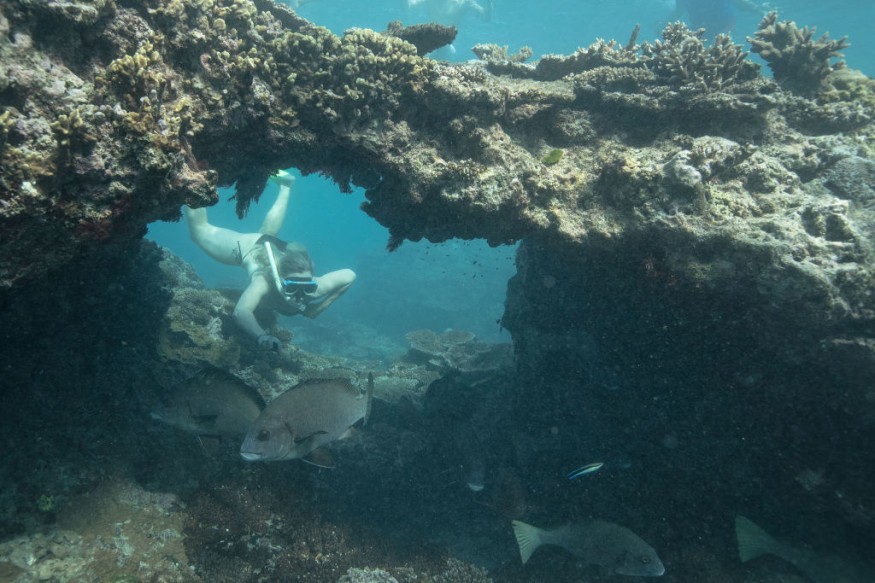
Coral reefs all over huge swathes of the Great Barrier Reef will bleached for the 4th time in seven years by the end of January, as shown in a projection from a US public authority.
Coral experts are seeking for favorable climate, such as cloudiness and downpours to cool corals and keep the vulnerability at bay.
In a study published prior last month, it explains that if climate change is maintained below 2℃, portions of the coral will experience temperatures high enough to destroy coral reefs 5 years per decade, by the mid-century.
Great Barrier Reef to Face Mass Bleaching
Furthermore, US National Oceanic and Atmospheric Administration said that warm air will accumulate in the temperate zone of the reef, causing coral reefs to whiten by late January.
Unesco's research mentors told reporters previously this year that the reef should be added to a lineup of vulnerable historic sites, however the Morrison administration's strong campaigning has deferred a judgment until least June after this year.
The Department of Meteorology's statistic, explained that it was extra mild than Noaa's, but weather conditions was around a degree above ordinary for the previous months across the coral.
While bureau press secretary stated that the coastal perspective is implying higher heat pressure on the Great Barrier Reef for the rest of the year and January 2022, decreasing in February.
Ocean temperatures are presently above ordinary much anywhere, according to Dr David Wachenfeld, lead researcher at the Great Barrier Reef Marine Park Jurisdiction, with some regions 2℃ warmer.
"With La Nia situations constructing, we're hoping the reef will be spared next year," he told reporters.
As per Noaa's projections, segments of the reef from south of Airlie Coastline to the headland of Cape York, a proximity of almost 1,300 kilometers will presumably be bleaching by the 3rd of January.
"Coral is now in a crucial recovery phase" said expert at the University of Queensland, Mr. Peter Mumby.
Yet he was preoccupied by the Noaa weather predictions since "they appear to be very conventional."
Even though 2020 is by far the most pervasive bleaching occurrence on transcript, Wachenfeld said the thermal tiers aren't as severe as prior episodes, so the reef was already granted a few years to rebuild with low concentrations of coral frailty.
The projections indicates that by mid-February, huge swaths from Cairns onwards will be at Terror Alert 2, the highest tier of excessive heat where coral fatalities are widely suspected.
Climate Change Contribution to Mass Bleaching
The Marine Environment has experienced five widespread decolorization events since 1998, 2002, 2016, 2017, and 2020, all of which were exacerbated by higher sea temperatures extreme weather events.
Professor Terry Hughes of the ARC Research center for Coral Experiments at James Cook College is a coral bleaching specialist who reviews the reef throughout bleaching activities.
"All are feeling a little down about the possibility of yet another bleaching occurrence," he said.
Litigators for three young Queenslanders authored to the 21-country Intergovernmental Committee on Friday, imploring it to enumerate the reef as in jeopardy when it fulfills again in June in Russia.
Researcher Tom Bridge, an environmentalist and coral expert at the Gallery of Tropical Queensland, stated that Noaa prognostications can't make him even somewhat concerned about the possibility of bleaching than they did in previous years.
© 2025 NatureWorldNews.com All rights reserved. Do not reproduce without permission.





